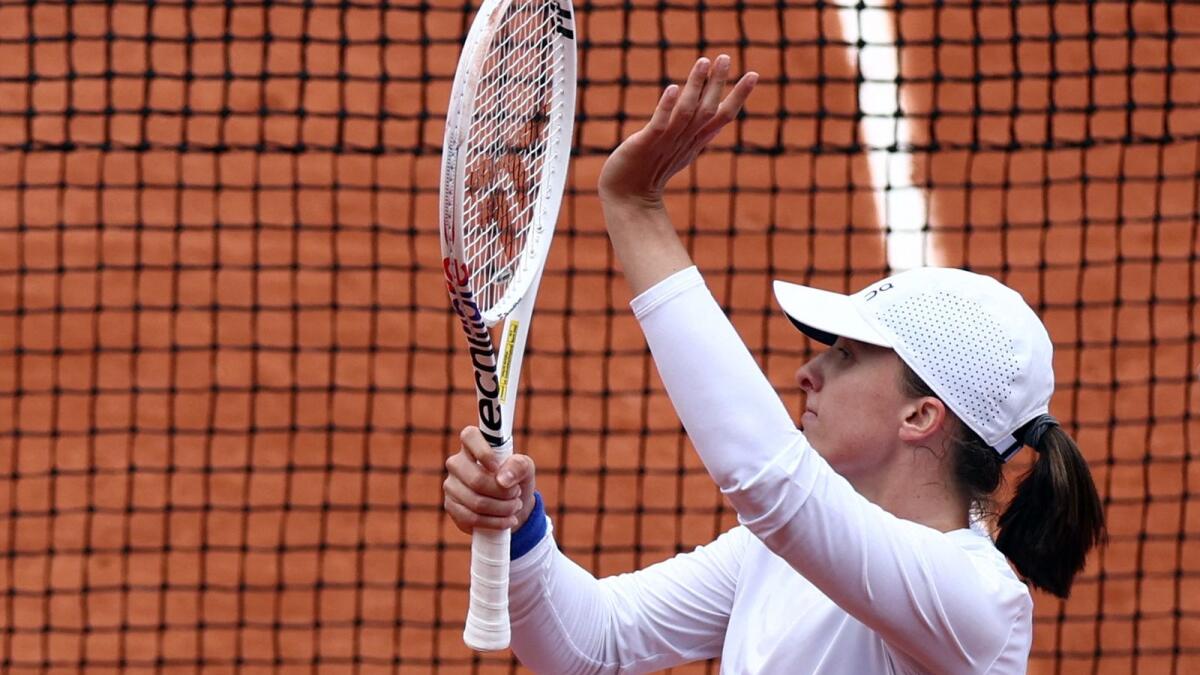In a recent tennis match, defending champion Novak Djokovic played in a marathon third-round clash that ended in the early hours of the morning, prompting players like Iga Swiatek and Coco Gauff to stress the importance of starting matches earlier at Grand Slam events. Djokovic’s match against Lorenzo Musetti ended past 3 am, making it the latest ever finish at Roland Garros. Swiatek, after her victorious 6-0 6-0 match against Anastasia Potapova, expressed concerns about late finishes, stating that it is not ideal for fans or players. She emphasized that players need time for recovery, media obligations, and rest after a match lasting until the early hours of the morning.
The issue of late finishes at Grand Slam tournaments raises concerns about the impact on players and spectators, with Swiatek advocating for earlier match starts to avoid late-night matches that go on past midnight. Coco Gauff, a former Roland Garros runner-up, also commented on the issue, highlighting the disruption to players’ schedules caused by late-night finishes. Gauff suggested exploring alternative solutions such as moving matches to different courts if they are running long, while acknowledging the complexity of the situation due to ticket sales and scheduling constraints. The WTA and ATP Tours have taken steps to limit the number of late-night matches in the interest of player welfare, indicating a growing awareness of the need for better scheduling practices in tennis tournaments.
The potential impact of late-night matches on player health and performance is a significant concern for athletes like Swiatek and Gauff, who require adequate rest and recovery to perform at their best. Late finishes can disrupt players’ routines, affect their recovery process, and make it challenging to manage their schedules effectively. The suggestion to limit late-night matches and explore alternative scheduling options reflects a growing recognition of the importance of player well-being in the sport of tennis. By prioritizing player welfare and implementing measures to avoid late-night finishes, tournament organizers can ensure that players are able to compete at their best and maintain their physical and mental health throughout the competition.
The issue of late-night finishes at Grand Slam events is a recurring challenge that impacts players, fans, and tournament organizers alike. While the excitement of a late-night match can be energizing for spectators, it can pose logistical challenges for players and create scheduling conflicts that affect the overall flow of the tournament. By addressing concerns raised by players like Swiatek and Gauff, tournament organizers can work towards finding solutions that balance the needs of players, fans, and the overall tournament experience. Whether through implementing scheduling restrictions, exploring alternative match arrangements, or prioritizing player welfare, there are various ways to address the issue of late-night finishes and create a more player-friendly environment for tennis competition.
In conclusion, the issue of late-night finishes at Grand Slam tournaments remains a pressing concern for players and fans alike, as highlighted by recent comments from top tennis athletes like Iga Swiatek and Coco Gauff. By prioritizing player welfare, exploring alternative scheduling options, and finding ways to limit late-night matches, tournament organizers can create a more player-friendly environment that supports the well-being and performance of athletes. With a growing awareness of the impact of late finishes on players’ health and schedules, there is an opportunity for tennis tournaments to implement changes that benefit both athletes and fans, ensuring a more enjoyable and sustainable competition experience for all involved.











